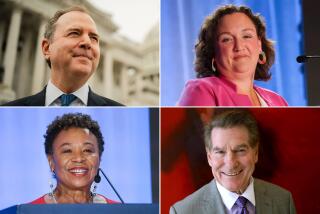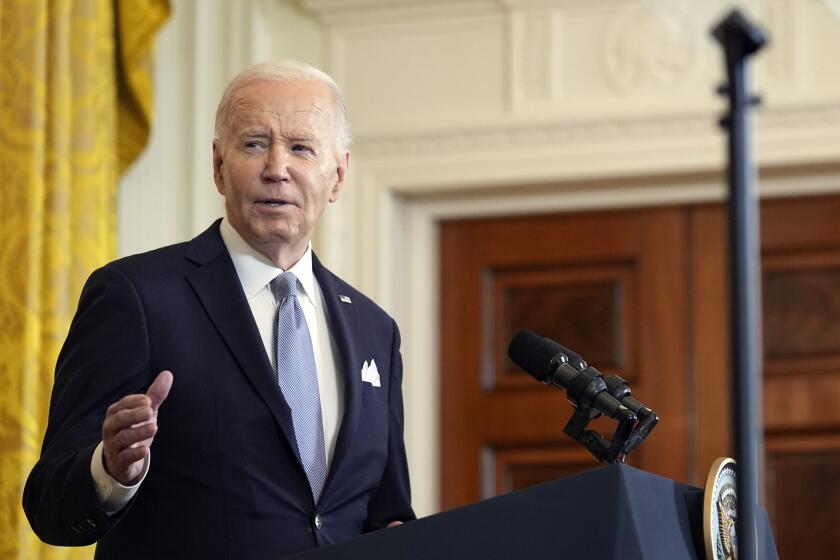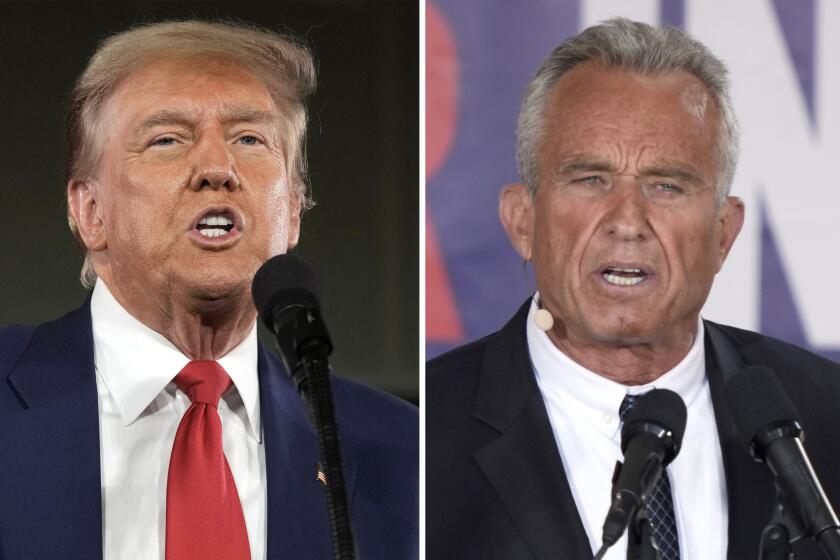WASHINGTON INSIGHT
BACK-HOME BLUES: President Bush faces a spate of potentially thorny domestic disputes with Congress when he returns today from his trip to Greece and Turkey in the wake of last week’s seven-nation Western economic summit in London.
The battle lines are already drawn: Bush’s nomination of Robert M. Gates to be director of Central Intelligence has been placed on hold while lawmakers look into Gates’ possible involvement in the Iran-Contra scandal. His appointment of Clarence Thomas to the Supreme Court faces a bitter fight on Capitol Hill. Both houses are expected to continue their battle over a measure to lift the ban on abortion counseling in federally funded health care clinics. And scraps loom ahead over the civil rights bill, banking reform legislation and a proposed 5-cent-a-gallon increase in the gasoline tax, contained in the highway bill.
Some Democrats are hoping to exploit the recent slippage in presidential popularity from the days of the Gulf War. A Times Mirror poll showed Bush’s approval rating at 67% last week--good, but below the 84% it reached in mid-March.
HOMING IN: The latest mushrooming of the federal budget deficit puts economic policy-making power more firmly than ever in the hands of Federal Reserve Board Chairman Alan Greenspan, top government analysts concede.
Last week’s revelation that the fiscal 1992 deficit will be a staggering $67.4 billion higher than had been estimated last February leaves the Administration with even less maneuvering room than before for stimulating the economy if the recovery falters--a difficult spot as the White House heads into an election year.
Why the government’s deficit estimate was so far off puzzles lawmakers--and even some top officials--who are trying to home in on the reason for the error. Some suspect that the Administration purposely underestimated the deficit a year ago to help nudge Congress into agreeing to the current budget accord. One well-placed official points out that estimates back then were “suspiciously low.”
GOING HOME? The White House is bracing for a raft of departures by top foreign policy officials as the Administration nears its 2 1/2-year point--traditionally the time when most administrations are hit by mass exoduses.
The turnover is most acute in the foreign policy arena: National Security Council Deputy Director Gates hopes to move to the CIA. Undersecretary of State Robert M. Kimmitt has been nominated to become ambassador to Germany.
But the changes run much deeper, especially among those who have worked on U.S. policy on the Soviet Union. Condoleezza Rice and Robert Blackwill, the two key NSC aides who nurtured Bush’s rapprochement with Soviet President Mikhail S. Gorbachev, have moved back to academic posts at Stanford and Harvard universities; Assistant Secretary of State Raymond Seitz has moved to London as U.S. ambassador. “After two years, we were all simply exhausted,” one of the aides said.
DOING HER HOMEWORK? First Lady Barbara Bush stunned onlookers at last week’s economic summit when she implied to a 28-year-old AIDS sufferer in London that Congress was to blame for U.S. immigration rules that bar persons who test HIV-positive.
Experts quickly pointed out that the regulation outlining current policy was issued by the White House. “She should have suggested that he lobby the President,” one analyst said.
More to Read
Get the L.A. Times Politics newsletter
Deeply reported insights into legislation, politics and policy from Sacramento, Washington and beyond. In your inbox three times per week.
You may occasionally receive promotional content from the Los Angeles Times.






